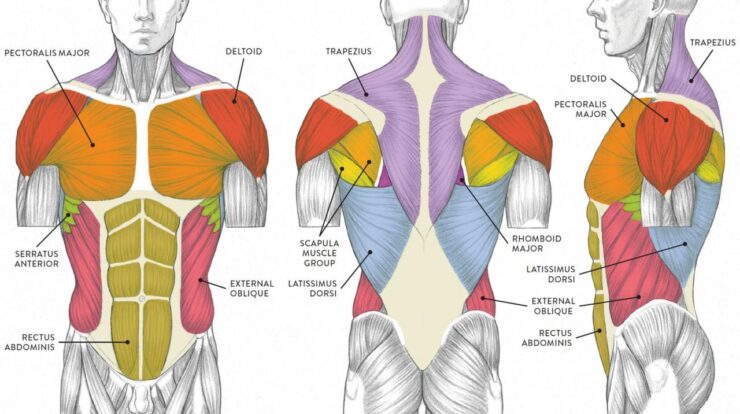
Faith definition – Unveiling the multifaceted nature of faith, this exploration delves into its definition, types, and significance across various life aspects. From its profound connection to religion and the interplay with science to its relationship with reason, doubt, hope, and love, faith emerges as a dynamic force shaping human experiences.
Faith encompasses a spectrum of beliefs, from religious convictions to personal convictions, influencing actions, values, and perspectives. It transcends mere intellectual assent, embracing a deep-rooted trust and reliance on something greater than oneself, whether divine, spiritual, or abstract.
Faith Definition
Faith is a complex and multifaceted concept that refers to a strong belief in something without absolute proof or evidence. It can be directed toward a religious doctrine, a set of values, or a particular person or cause. Faith often involves trust, hope, and a willingness to accept uncertainty.
Types of Faith
- Religious Faith:Belief in a deity or divine power.
- Personal Faith:Belief in oneself, one’s abilities, or a particular set of principles.
- Social Faith:Belief in the goodness of humanity or the value of social institutions.
- Philosophical Faith:Belief in a particular philosophical system or set of ideas.
Importance of Faith
Faith plays a crucial role in various aspects of life, including:
- Personal Well-being:Faith can provide a sense of purpose, meaning, and inner peace.
- Social Cohesion:Faith can unite communities and foster a sense of belonging.
- Moral Guidance:Faith can provide a framework for ethical decision-making.
- Hope and Resilience:Faith can inspire hope and resilience in the face of adversity.
Faith and Religion
Relationship Between Faith and Religion
Faith is often closely associated with religion, which provides a structured system of beliefs and practices. Religion can shape and reinforce faith, while faith can provide a personal connection to religious doctrines.
Influence of Faith on Religious Beliefs and Practices
Faith influences religious beliefs and practices in various ways:
- Acceptance of Doctrines:Faith enables believers to accept religious doctrines without absolute proof.
- Participation in Rituals:Faith motivates participation in religious rituals and practices.
- Experiences of the Divine:Faith can lead to subjective experiences of the divine or the supernatural.
Examples of Faith Shaping Religious Traditions
- Christianity:Faith in Jesus Christ as the savior.
- Islam:Faith in Allah as the one and only God.
- Buddhism:Faith in the teachings of Buddha and the path to enlightenment.
Faith and Science: Faith Definition
Relationship Between Faith and Science, Faith definition
The relationship between faith and science is complex and multifaceted. Some perspectives view them as incompatible, while others see them as complementary.
Different Perspectives on Compatibility
- Conflict Model:Faith and science are seen as inherently incompatible, with scientific evidence contradicting religious beliefs.
- Harmony Model:Faith and science are seen as complementary, with each providing different ways of understanding the world.
- Independence Model:Faith and science are seen as separate realms, with no inherent conflict or connection.
Examples of Faith and Science Interaction
- Scientific Revolution:Faith influenced the development of modern science, with scientists seeking to understand the natural world created by God.
- Theory of Evolution:Faith in religious doctrines has influenced the acceptance or rejection of the theory of evolution.
- Biotechnology:Faith-based ethical concerns have shaped debates about the use of biotechnology.
Faith and Reason
Relationship Between Faith and Reason
The relationship between faith and reason is another complex and debated topic.
Arguments for and Against the Use of Reason in Faith
- Pro-Reason:Reason can help understand and articulate faith, and can provide a rational basis for belief.
- Anti-Reason:Faith is based on belief beyond reason, and attempts to rationalize it can undermine its essence.
Examples of Faith and Reason Used Together
- Natural Theology:Using reason to infer the existence of God from the natural world.
- Scholasticism:Medieval philosophy that combined faith and reason to understand religious doctrines.
- Modern Apologetics:Using reason to defend and explain religious beliefs in a secular context.
Faith and Doubt
Relationship Between Faith and Doubt
Faith and doubt are not necessarily mutually exclusive. Doubt can challenge faith, but it can also lead to a deeper understanding.
Different Ways Doubt Can Challenge Faith
- Intellectual Doubts:Questions about the logical or historical basis of religious beliefs.
- Emotional Doubts:Struggles with personal experiences or feelings that contradict religious doctrines.
- Experiential Doubts:Absence of subjective experiences or miracles that would confirm religious beliefs.
Examples of Doubt Leading to a Deeper Understanding
- Job in the Bible:Despite his suffering and doubts, Job’s faith in God ultimately deepened.
- St. Thomas Aquinas:His rational approach to faith helped resolve intellectual doubts about religious doctrines.
- Contemporary Faith:Doubts can lead to a more nuanced and personal understanding of faith.
Faith and Hope
Relationship Between Faith and Hope
Faith and hope are closely intertwined, with faith providing the foundation for hope.
How Faith Inspires Hope
- Belief in a Better Future:Faith provides hope for a positive future, even in the face of adversity.
- Trust in Divine Providence:Faith in a higher power inspires hope that things will ultimately work out for the best.
- Examples of Faith and Hope
- Civil Rights Movement:Faith in a just God inspired hope for racial equality.
- Holocaust Survivors:Faith gave hope for a better life after unimaginable suffering.
- Cancer Patients:Faith can provide hope and strength during difficult treatments.
Faith and Love

Relationship Between Faith and Love
Faith and love are often seen as complementary forces, with faith providing a foundation for love.
How Faith Leads to Love
- Love of God:Faith in a loving God inspires love for others.
- Empathy and Compassion:Faith can foster empathy and compassion towards all people.
- Unconditional Love:Faith in a God who loves unconditionally can inspire love without judgment.
Examples of Faith and Love
- Mother Teresa:Her faith in God motivated her lifelong work of serving the poor and marginalized.
- Interfaith Dialogue:Faith can inspire dialogue and understanding between different religious traditions.
- Social Justice Movements:Faith-based organizations often play a significant role in social justice movements.
Final Wrap-Up
Through this discourse, faith emerges as a multifaceted concept, intricately intertwined with human existence. It inspires hope, fosters love, and guides our pursuit of meaning and purpose. Whether in the realm of religion, science, or personal beliefs, faith remains a powerful force that shapes our understanding of the world and our place within it.
Commonly Asked Questions
What is the essence of faith?
Faith is the unwavering belief in something despite the absence of concrete evidence, often rooted in religious convictions, personal values, or abstract concepts.
How does faith differ from belief?
While belief implies intellectual acceptance, faith goes beyond mere assent, involving a profound trust and reliance on something greater than oneself.
What is the significance of faith in human life?
Faith serves as a guiding force, providing meaning, purpose, and a sense of connection to something greater, influencing our actions, values, and perspectives.





